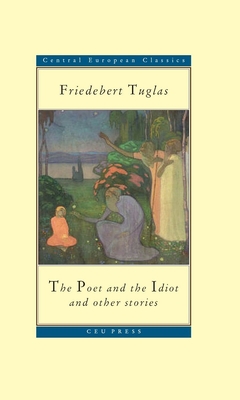The Poet and the Idiot

The Poet and the Idiot
Estonian literature in its written form is little more than a century old. As Estonia was part of the Russian Empire, then of the Soviet Union, it is something of a miracle that the powerful presence of the Baltic Germans, the periods of Russification, and other more subtle forms of cultural pressure, have not eradicated Estonian as a serious literary language. One of the central figures to credit for this was Friedebert Tuglas.
The nine stories, and the essay, featured here were written during the World War One, or in the first years of Estonian independence in the early 1920s. They reflect the troubled spirit of the times, but exhibit the influence of a wide selection of writers, ranging from O. Wilde and M. Gorky, to F. Nietzsche and Edgar Allan Poe. The subject matter of Tuglas' stories represented here ranges from a starving prisoner, via a luckless pharmacist's hallucinations from childhood, a wandering soldier who encounters weird spirits, to a young man sitting in a park, accosted by a devilish lunatic who wants to introduce a new brand of devil worship to the world.
Descrierea produsului
Estonian literature in its written form is little more than a century old. As Estonia was part of the Russian Empire, then of the Soviet Union, it is something of a miracle that the powerful presence of the Baltic Germans, the periods of Russification, and other more subtle forms of cultural pressure, have not eradicated Estonian as a serious literary language. One of the central figures to credit for this was Friedebert Tuglas.
The nine stories, and the essay, featured here were written during the World War One, or in the first years of Estonian independence in the early 1920s. They reflect the troubled spirit of the times, but exhibit the influence of a wide selection of writers, ranging from O. Wilde and M. Gorky, to F. Nietzsche and Edgar Allan Poe. The subject matter of Tuglas' stories represented here ranges from a starving prisoner, via a luckless pharmacist's hallucinations from childhood, a wandering soldier who encounters weird spirits, to a young man sitting in a park, accosted by a devilish lunatic who wants to introduce a new brand of devil worship to the world.
Detaliile produsului












